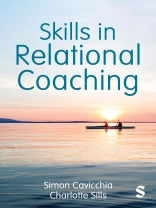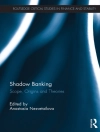This illuminating guide to the core skills and techniques of the relational approach to coaching brings the intersubjective, collaborative relationship between coach and client into focus. The authors use key case examples from a variety of settings to illustrate the skills needed at different stages of the coaching relationship, including chapters on:
· Establishing the Working Alliance
· Inquiring Collaboratively
· Use of Self
· The Presenting Past
· Enactments, Games, Ruptures and Repairs
· Endings in Coaching
Filled with a variety of exercises and reflective questions, this will be an invaluable resource for trainee coaches or those already practicing wishing to refine their skills.
Jadual kandungan
What is Relational Coaching?
Establishing the Working Alliance: Contacting and Contracting
Inquiring Collaboratively
Use of Self
The Presenting Past
Enactments, Games, Ruptures and Repairs
Experiment and change
Endings in Coaching
Relationship and Relating as a Moral Imperative
Mengenai Pengarang
Charlotte Sills is a UKCP registered psychotherapist in private practice and a coach, supervisor, trainer and consultant in a variety of settings. She is a BACP senior accredited supervisor, a Teaching and Supervising Transactional Analyst and member of faculty on the MSc in Executive Coaching and PG Dip in Organisational Supervision at Ashridge Hult Business School where she is Professor of Coaching.Until 2007 she was part of the Leadership Team at Metanoia Institute, London where she was the Head of the Transactional Analysis Department, offering an MSc Programme in TA Psychotherapy and BSc in Counselling. She remains an occasional member of the faculty in the TA, Gestalt and Integrative Departments. Charlotte believes that all human systems – from friendships to organizations – are about people in relationship. She has published widely in the field of relational therapy and coaching, including, with Helena Hargaden, Transactional Analysis – A Relational Perspective (Karnac 2002) and Coaching Relationships (edited with Erik de Haan, Libri Press, 2012).












